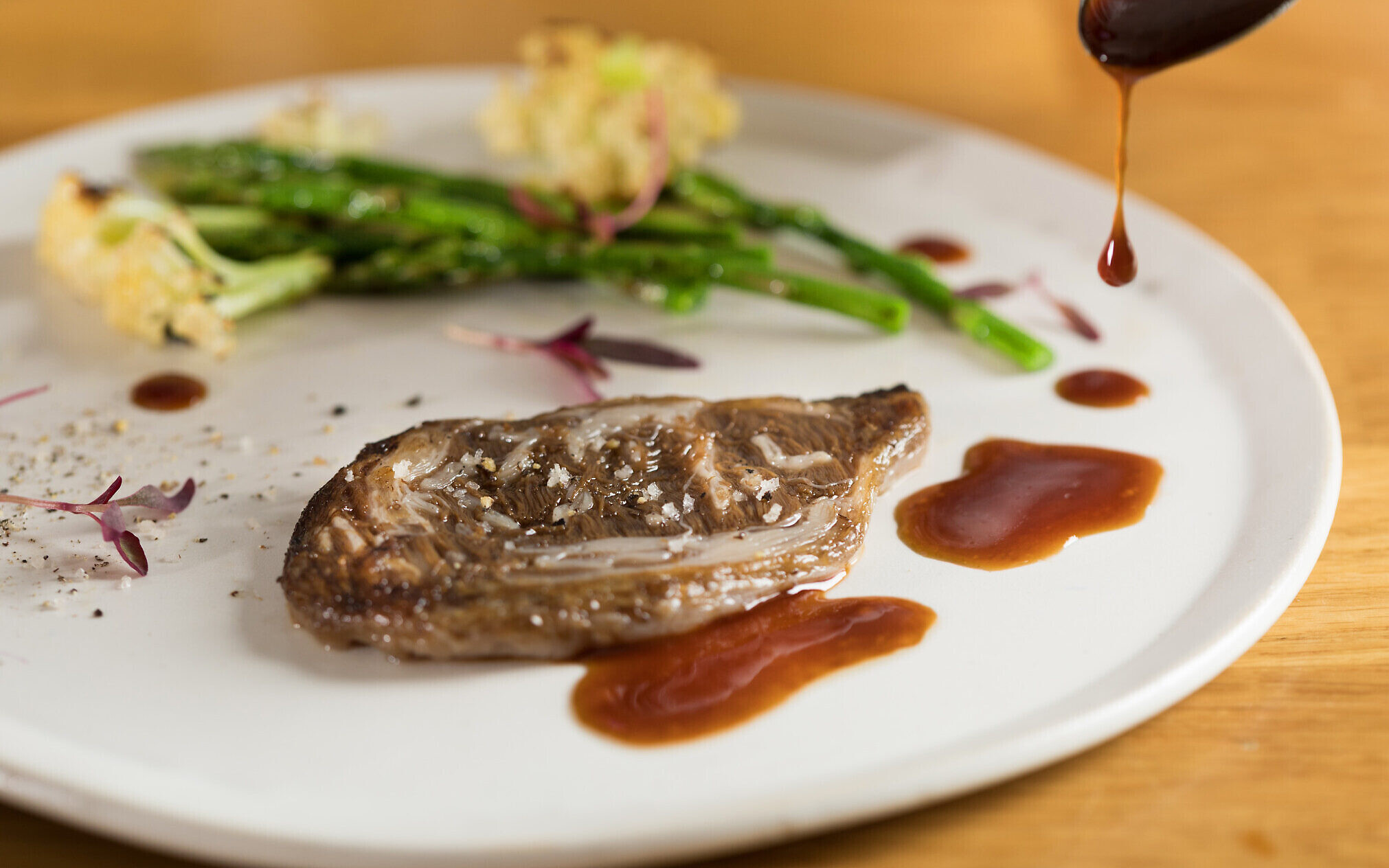Over the past few years, a solution to the astounding amount of meat consumption has come to the forefront: cultivated meat companies.
“I grew up eating meat and loving it, but I didn’t like how it came to the table,” said Uma Valeti, co-founder and CEO of the cultivated meat company Upside Foods. “I realized that some of the technology that we were using to save people with heart attacks could also save our food system and our planet.”
Valeti, originally a cardiologist, founded the company in 2015 with Nicholas Genovese and Will Clem under the name Memphis Meats, which eventually became Upside Foods as it is known today. Since 2015, the company has made astounding progress. Their investors include Kimbal Musk, Whole Foods, Bill Gates, Richard Branson, and Tyson Foods, and they have also recently been FDA-approved.
Their process of cultivated meat begins with the harmless sampling of animal cells and continues with an immortalization process that will allow them to use those cells for many years. Then, they nourish the cells and eventually cultivate them for about three weeks until they are ready to be packaged, shipped, cooked, and consumed, just like a regular piece of meat.

While cultivated meat does have the advantage of saving animals, it’s also incredibly sustainable. “At scale, we project cultivated meat will use 77% less water and 62% less land than conventional meat,” their website reads. This process also limits the amount of animal-borne diseases in meat as it is created in a lab.
Currently, Upside Foods does not have any products on the market, but when they do, they’ve announced that their first will be their chicken, as it is the most in demand. They are also working on a beef meatball and “delectable duck” which will be released after.
But like any pioneering industry, there is certainly competition. One of these companies is Aleph Farms, whose focus is not only on steak but expanding their business to the stars. Founded in Israel in 2017, Aleph Farms has also made strides by becoming the first company to have a cultivated steak in 2018, the first company to have meat grown in space in 2019, and the first company to cultivate a rib-eye in 2021.

“Aleph’s extraordinary technology platform combined with their inclusive approach to bringing about systemic change in our food systems make them a leader in this field,” Leonardo DiCaprio, one of many members of their advisory board, said. Although they haven’t started putting their products on the market yet either, their website proudly boasts that they have deals to bring their steaks to Japan, Thailand, South Korea, and Brazil in the future and will begin selling in Singapore and Israel in the coming year.
But perhaps the most unique thing about Aleph Farms – other than the fact that they’re growing steaks in a lab – is Aleph Zero, a branch of their company focused on bringing their cultivated steak to space. “A self-sustaining food system provides continuous access to fresh food for astronauts who travel in space for long periods of time. Beyond nurturing psychological health, fresh food has been found to have fundamental mental health benefits,” their website says.

One company, GOOD Meat, has already begun selling its cultivated meat in Singapore. They are a subsidiary of Eat Just Inc., most famously known for its JUST Egg product which is enjoyed around the world. Their chicken will also be the first to sell in a butchery.
“GOOD Meat allows us to respect animals, eat the food we love and feed our growing planet.”
– GOOD Meat
While it is true that cultivated meat isn’t ready to be globally consumed yet, it is no secret that it is the future of the sustainable meat industry, and it is clear that these trailblazing companies aren’t done making history yet.
Featured Image Credit: Upside Foods
